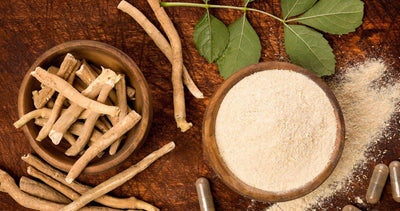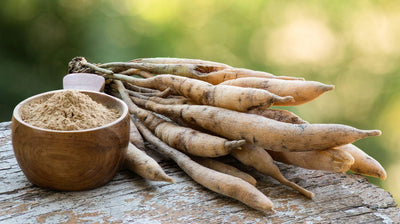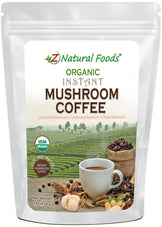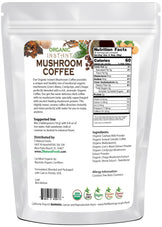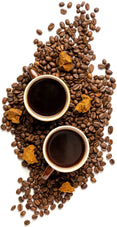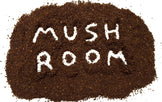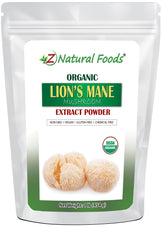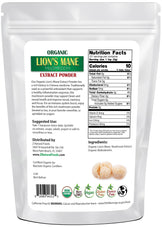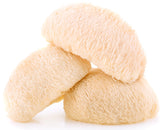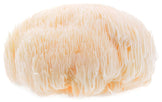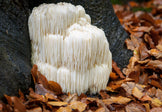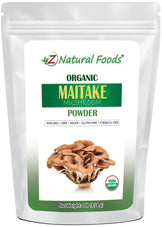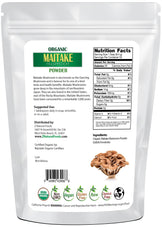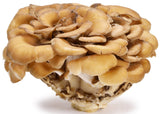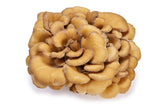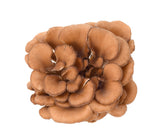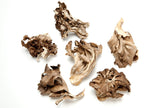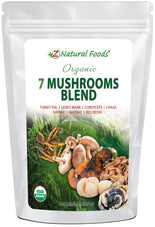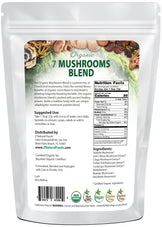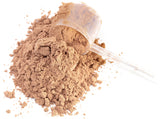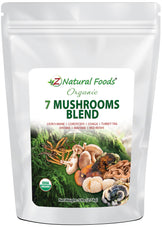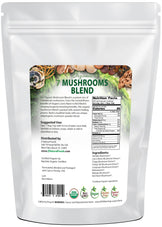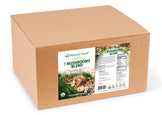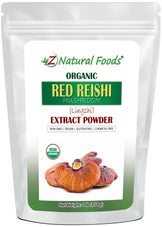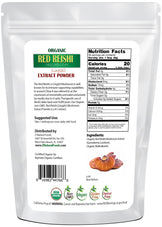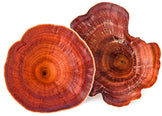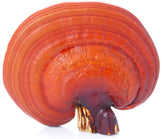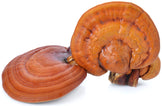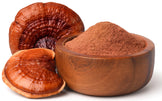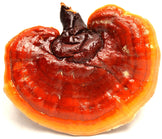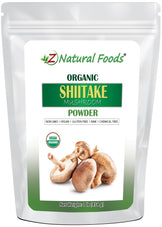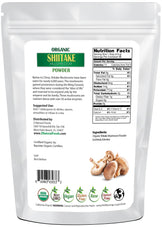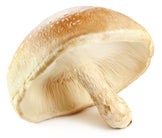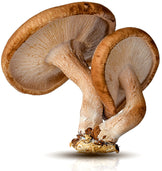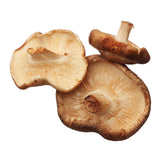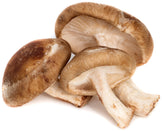Description
Description
If you have ever wondered about the differences between maitake and shiitake mushrooms, you have found the right article.
In this article, we review the differences, and when you are done, you’ll easily be able to tell which one is for you.
Shiitake vs Maitake mushrooms (the difference)
Shiitake is well known for supporting a healthy immune system response. Maitake is known as the "King of mushrooms" and has many culinary uses because of its unique appearance, texture and flavor, and nourishing qualities.
All medicinal mushrooms indeed contain a wide array of compounds and polysaccharides, allowing them to create a modulating support system to nourish and balance human physiology.
While these potent fungi are often grouped into general categories like tonics, adaptogens, and nootropics, each mushroom has unique qualities and functions.
Because of their well-known ability to support systemic modulation, medicinal mushrooms, known as double-direction equalizers, are some of the most revered foods in the herbal tonic world.
Our mission is to answer your questions and provide a thorough explanation and the critical details necessary to understand the topic.
So, today we look at the unique aspects of both Shiitake and Maitake mushrooms.
About Shiitake Mushroom
Neutral in temperature and sweet in taste, Shiitake mushrooms (a.k.a., Lentinus edodes and L. edodes) contain a powerful litany of potential supportive healing properties.
According to Traditional Chinese Medicine, this powerful mushroom tonic is specific to the energy of the stomach and spleen, which is why it is known for supporting a healthy appetite.
World-famous for tonifying both Qi and blood, Shiitake also dissolves phlegm and humidity and dispels wind. In Chinese Medicine, wind is considered the spearhead of all illnesses because it catalyzes undesirable influences on the body.
Conditions Western medicine is unable to explain are thought to be influenced by wind, according to Chinese Medicine.
Interestingly, wind can invade the body from both the outside (known as external wind), disturbing lung Qi and the inside (known as internal wind) that agitates liver Qi known to control emotions like anger.
Like turkey tail mushrooms, shiitake is also well known for supporting Wei Qi, a healthy immune system response.
A four-week parallel-group study with 52 healthy males and females between the ages of 21-41 consumed five or ten grams of mushrooms daily to determine if eating mushrooms can improve human immune function.
In the paper The Unexplored Anticaries Potential of Shiitake Mushroom, it was concluded, “There exists convincing evidence of this mushroom to be used as a functional food for the prevention of oral diseases and the betterment of oral health as a whole. Different extracts of shiitake have shown potent antibacterial and antifungal activities.”
“From the oral health point of view, shiitake extracts have demonstrated caries preventive activities, reduction in oral biofilm formation, and antigingivitis effects.”
Maitake Mushroom: A King in the mushroom world
From late summer through early fall, mushroom hunters and enthusiasts are searching for the delicious culinary delight known as Maitake Mushrooms in temperate hardwood forests worldwide.
This fabulous fungus is researched by mycologists for its potent healing properties and prized by top chefs for its unique application in the culinary world. It has been used as a powerful nourishing tonic in traditional Chinese medicine for thousands of years as an honored food that may support longevity.
Its unique and profound appearance, delicious texture and flavor, and powerful nourishing qualities demand respect be given to the fungi known as the “king” of the mushroom world.
From a TCM perspective, the Maitake mushroom is a powerful tonic food that is neutral in temperature and sweet in flavor.
This is not the conventional definition of “sweet.” In traditional Chinese medicine, sweet is considered yang or to warm and strengthen the body from deficiencies. Sweet foods also have a yin aspect, moistening, increasing fluid in the tissue, and relaxing the body.
Maitake’s neutrality in temperature means that it balances the body’s energy source, known as Qi. But wait, there is more...
Chinese medicine also says that maitake:
- Replenishes the spleen, the organ most specific for digestion and fluid metabolism.
- Tonifies the liver responsible for the smooth flow of Qi, blood, and emotions.
- Tonifies the kidneys responsible for storing and controlling jing (one’s constitution or essence of life).
- Relax the mind and calm the Shen (calm the heart and spirit, clear the sense).
It is Maitake’s “calming the Shen” qualities and ability to possibly generate “adaptive immune responses” that directly connect to the adaptogen-like quality of supporting a healthy stress response and a healthy nervous system.
In a paper titled Prebiotic Effect of Maitake Extract on a Probiotic Consortium and Its Action after Microbial Fermentation on Colorectal Cell Lines, it was concluded,
Maitake D-Fraction: Is the sum of the parts equal to the whole?
All foods and herbs contain potent compounds that have shown great potential for supporting optimal health.
Much like other mushrooms, maitake is a nourishing source of these powerful compounds.
Thanks to modern techniques for performing tissue cultures, we know potent compounds like PSK are found in turkey tail mushrooms, and lentinan is in shitake mushrooms.
We also see that reishi has around 16,000 genes that code for more than 200,000 compounds, and 400 of them are active constituents.
So, what exactly is Maitake D-Fraction?
It is an isolated and standardized form of proteoglycan, mainly beta-glucans composed of both (1>6) and (1>3) branching, which vary in molecular weight depending on the quality and purity.
Beta-glucans are polysaccharide compounds thought to nourish and support a healthy immune system response. In addition, a direct correlation has shown positive results between polysaccharides and metabolic syndrome.
When these compounds are isolated, they may function differently as individual entities. When you read human studies on the effects of Maitake, you may be overwhelmed by the results based on isolated preparation or the whole maitake mushroom. When constituents are purified and isolated, they take on a more targeted mechanism of action than the entire maitake mushroom. There may be better ways to optimize these powerful constituents than this reductionist method.
It is believed that the primary polysaccharides found in fungi are beta-D-glucans which come in various forms (beta 1-3 and 1-6) and are specific to fungi and yeast. Other polysaccharides found in mushrooms are Alpha-glucans like glycogen, dextran, pullulan, and starch, which are not thought to provide the same nourishing qualities as beta-glucans. This belief tells you only part of the story and may be based on flawed science.
You may have noticed that most medicinal mushroom product labels focus on only beta-glucan levels; therefore, some important points must be clarified.
Here are accurate facts about beta-glucans:
- Beta-glucans are a classification of compounds known as polymers.
- There are hundreds of beta-glucan shapes and sizes, and while some are biologically active, others are not. Furthermore, not all are immunologically active.
- Each species of fungi may contain a different beta-glucan.
- Beta-glucans can differ in function, solubility, and interaction with other molecules.
- While beta-glucan are potent compounds, they are just one variable of a wide range of compounds responsible for a mushroom's many nourishing qualities.
- Ultimately, Beta-glucan levels are not necessarily the telltale sign of a product's effectiveness.
Therefore, It is misleading to state that beta-glucan levels are the determining factor in the effectiveness of a mushroom product. Beta-glucans are most effective when they work with all other constituents found in mushrooms, and if one or more are missing, it can change how effectively the end product works.
Revered and well-respected, Shiitake and Maitake mushrooms have proven their efficacy in the complementary world of medicine as powerful tonics in TCM and a most helpful adjuvant therapy within the Western medicine paradigm. Their ability to support an individual's quality of life and a healthy aging process are just two of the impressive qualities of these powerful medicinal mushroom tonics.
Because of their nourishing qualities, fungi have been, and will continue to be, the focus of research for many years to come.
Their unique attributes, unlimited potential, and untapped information are what make the fungi world so intriguing.
For more information about our mushrooms, visit these great resources:
- Turkey Tail Mushrooms: A Review of the Latest Research
- What are the three main parts of a mushroom?
- What is Maitake Mushroom used for? (+5 traditional uses)
- Which Mushroom Is Good For The Brain? (Explained)
- Most nutritious mushrooms (list of 7)
To review all of our mushroom products, go here:
